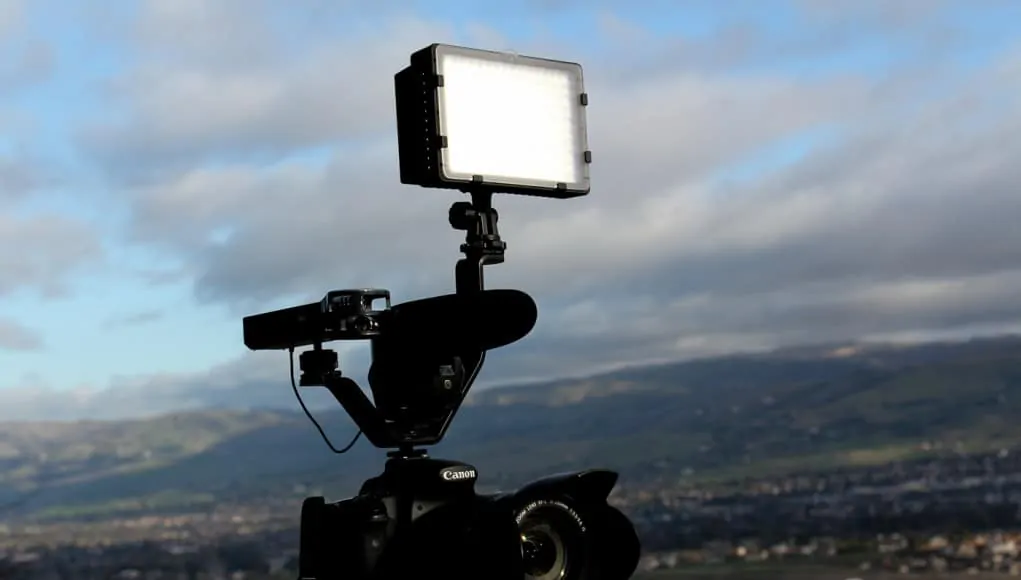People often ask me what accessory they should first buy after venturing into DSLR (and mirrorless) videography. My answer is always the same:
A shotgun microphone.
Audio quality is paramount. There really is little wiggle room for messing up the sound on your videos. If you don’t take care, pay attention and record the best sound effects, the best voice clarity and volume, and the best ambient sound (when needed), you risk losing your audience.
Videos are about capturing attention, and, at their best, telling compelling and interesting stories. Sure, the camera is important (here’s 5 of my top DSLR and mirrorless picks for shooting video), but there are two even more important ingredients: audio and… you. The latter I can’t do much to help out, other than to say practice, practice, practice. Watch others’ work as much as possible, and learn. Gear is all well and good, but how you use it is why someone like Martin Scorsese is a master. Skill, intuition, experience. While we can’t all become Oscar-winning filmmakers, I highly encourage you first focus on audio in your videos. Baby steps!
With that, here’s what I believe to be the 3 best shotgun microphones for shooting with your DSLR or mirrorless camera — without breaking the bank. Pop one of these on, and you’ll immediately notice huge improvements.
Top 5: Best Shotgun microphones for shooting DSLR video on a budget
1. Rode Videomic Shotgun Microphone
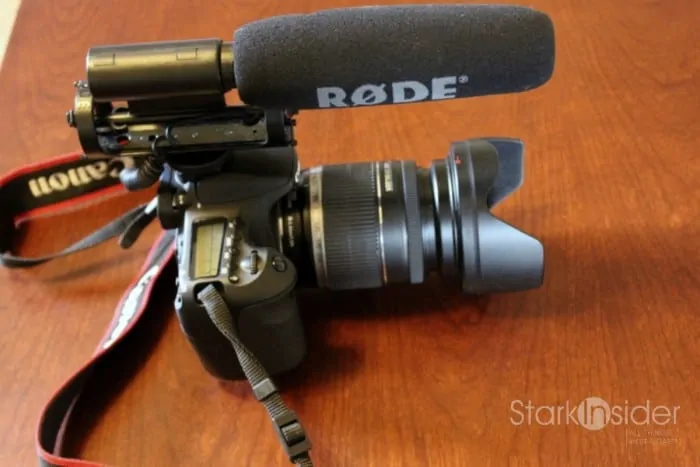
At just over $100, this is a screaming deal. Pure performance in a relatively compact package. What I like about this shotgun mic, in particular, is the re-designed mount. Rode did away with the fussy rubber bands (they drove me nuts as they would slip off too easily) and replaced it with a much improved Rycote Lyre system. Far better. I used the original for years: interviews, music concerts, wine events in Napa. It never failed me once. Battery life (9V) is great, it goes for days and days. And a high pass filter can be used to eliminate hum you often get when an HVAC is running nearby. A 3.5mm jack plugs into your input (most Canon and Nikon and Sony cameras use this type of connector, but please double check first). First time purchasing an accessory for your camera? This would be high on my list.
Rode Videomic Shotgun Microphone with Rycote Lyre Mount
2. Rode Videomic Pro Shotgun Microphone
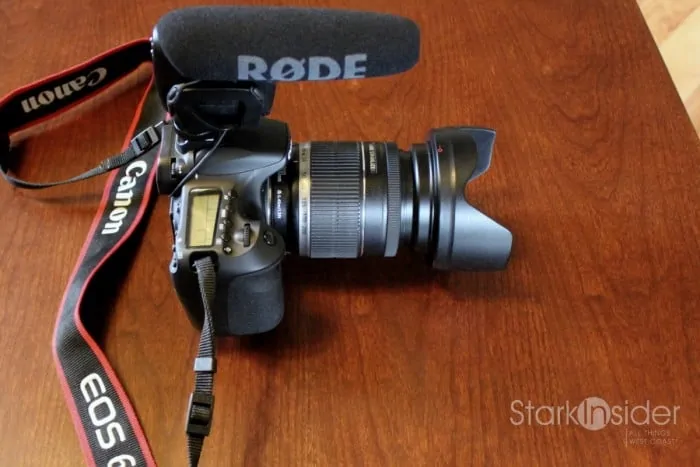
Yes, another Rode. Google a bit, surf the forums, and you’ll find that Rode is probably the favorite among hobbyists, and even professional film- and doc-makers. I’ve also used this one for years. For about twice the price you’ll get better sound than the standard Videomic. But I most appreciate the more compact size. It’s smaller, and the nose of the mic doesn’t protrude as much beyond the front of the camera, making this a more discrete choice.
Here is yours truly using the Canon 70D with a Rode Videomic Pro (hint: don’t wear bright orange like I’m doing here, what was I thinking?):
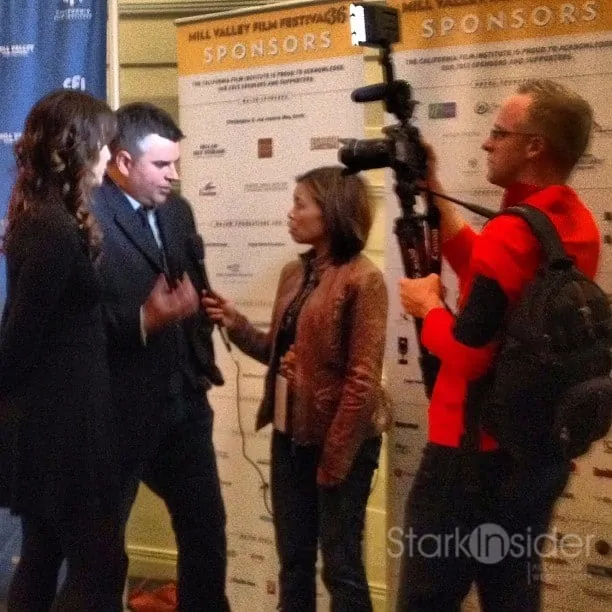
Heads up, this one still uses those rubber bands for shock suppression. But on this one there’s only two (left and right) and they generally do the job.
Rode VideoMic Pro Compact VMP Shotgun Microphone
3. Sennheiser MKE 600
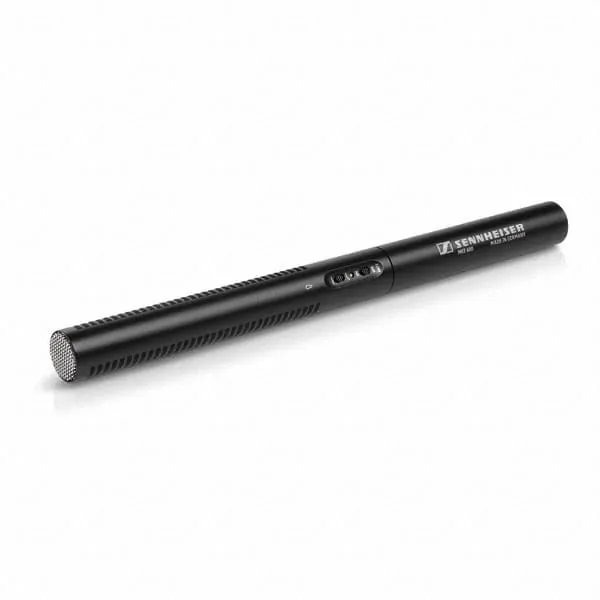
This one I consider a professional step-up from the Rode models mentioned above (Rode also makes some great pro-level mics in the NTG series, well worth a look). With this Sennheiser mic I find there to be less hiss, and less low end rumble. Mind you, I need to wear headphones to pick this up, but I do when editing videos. BTW- it’s not hard to remove that using high and low pass filter effects in an editor like Premiere Pro. But I find with the MKE600 there’s less reason to do so, and, better yet, the sound is overall richer and warmer in tone.
And here we are on location at BottleRock (with my wife), shooting interviews for Stark Insider:
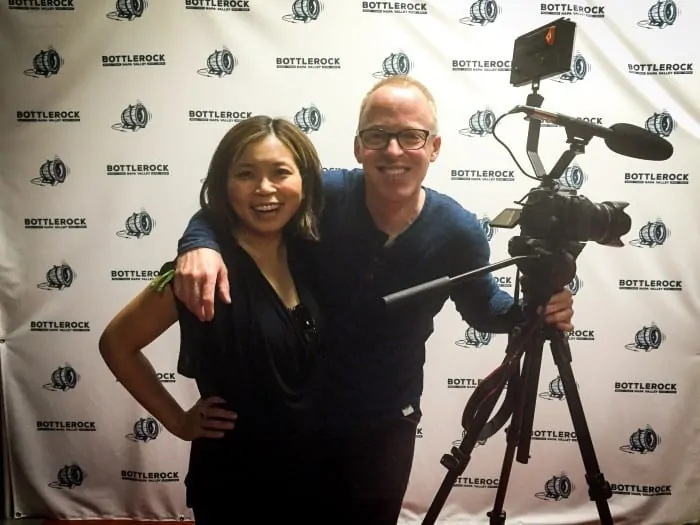
The trade-offs? There are a few with this Sennheiser.
(1) This mic uses an XLR connector which means you’ll likely need a XLR to 3.5mm adapter, on the other hand you can also use this mic as a regular microphone for interviews, and even for voiceovers and studio work. (2) It’s much bigger… 10-inches long… so you will feel, and notice this on your camera. Still, the MKE 600 is the full-time mic on my Canon 70D. Richness of sound wins me over.
Here’s a video from a recent music concert I shot where I used the Sennheiser MKE 600 (note: the interview audio is captured using Zoom H1 field recorders and synced later in post):
Sennheiser MKE 600 Camcorder Shotgun Microphone
Video Shooter: Sound Resource Guide
Some of the more useful audio guides, tips, articles I’ve bookmarked over the years:
- Audio Tips for DSLR Filmmakers (PremiumBeat)
- 5 Tips for Recording Better Location Audio (Noam Kroll)
- Ways to Record Sound with External Devices (Vimeo with filmmaker Philip Bloom)
- EQ Tips & Tricks: How to Tackle Several Audio Issues in Your Film (No Film School)
Bottom line: Sound matters … a lot
Whichever shotgun microphone you decide to buy, you should notice a huge improvement over your camera’s built-in mic (they’re not very good, and should primarily be used to record “scratch” audio). Well worth the small investment in my view.
Whether it’s a wedding, birthday, rock concert, or event, any of these shotgun microphones should vastly help you produce the best video possible. Of course, there’s also composition (keep it steady!), editing (keep it tight!), and, ultimately, sharing your work with the world (or just your friends on Facebook!).
TOP 3: Best Shotgun Microphones for Shooting Video (on a budget)
1. Rode Videomic Shotgun Microphone with Rycote Lyre Mount
2. Rode VideoMic Pro Compact VMP Shotgun Microphone
3. Sennheiser MKE 600 Camcorder Shotgun Microphone
All prices in USD.
I also included some of my favorite audio references and tips and tricks I’ve bookmarked over the years from other sites (see above).
Good luck, happy shooting.

